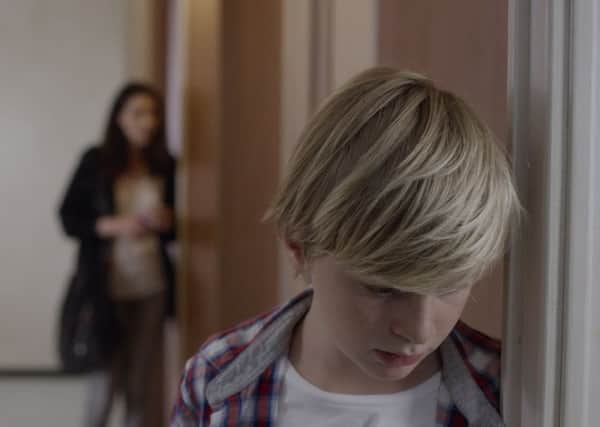Film reviews: Custody | Marlina the Murderer in Four Acts | You, Me and Him


Custody (15) ****
Marlina the Murderer in Four Acts (15) ***
You, Me and Him (15) *
A big winner at last year’s Venice film festival, French theatre actor turned director Xavier Legrand’s debut feature Custody is a masterful exercise in what could be termed Neo-realist horror: there’s nothing fantastical about its story of marital discord, domestic abuse and the children caught in the crossfire, but the way it escalates the anxiety and threat at the heart of the story could teach genre filmmakers a thing or two about building tension in gut-clenching ways.
The air of unease begins with the opening act, which takes place in a judge’s office as she listens to evidence in a post-divorce custody hearing between Miriam (Léa Drucker) and her ex-husband Antoine (Denis Ménochet) regarding access to their 12-year-old son Julien (Thomas Gioria). Legrand diligently lays out both sides of the legal case, putting us in the uneasy position of the judge (she’s played by Saadia Bentaïeb), who has to weigh up whether the unverifiable claims of harassment against Antoine are justified or whether they might be the desperate efforts of a father determined to be part of his kid’s life following the abrupt end of his marriage.
Advertisement
Hide AdThough instincts and countless Hollywood thrillers naturally compel us to side with Miriam here, to his credit, Legrand is scrupulous about keeping his distance from both characters, letting his camera coolly observe them with entomological detachment. He’s aided here in a large part by Ménochet, still probably most familiar to English-speaking audiences for playing the sympathetic farmer Christoph Waltz toys with sadistically in the opening scenes of Inglourious Basterds. Burly and bear-like, the actor cuts an imposing figure, but there’s a gentleness to him too, and his inscrutability in these early scenes seeds doubts about the charges laid against Antoine, even as Legrand plants a red flag that hints at where this might be heading.
The real trick of the film, though, is the way Legrand subtly shifts perspective from this outsider point-of-view of Antoine to a more subjective one, first by focusing attention on Julien’s interactions with his father, then by letting us see him through Miriam’s un-blinkered eyes. It’s here that the film starts ratcheting up the tension. First-time actor Thomas Gioria is remarkable as their son: a kid who not only has to figure out how to deal with a parent he’s clearly scared of, but a parent who is also trying to coerce him into revealing the address of his new home with his mother and about-to-turn-18 sister (played by Mathilde Auneveux). There’s a brilliant scene early on where Julien is dropped off at his grandparents house and he has to go through the charade of checking to see if his mother is there while Antoine waits outside, aware that his former in-laws are cowering behind the drapes. The heavy way Julien carries himself as he shuttles back and forth between these two sets of adults says plenty about the stress he’s being put under.
As Miriam, Drucker is also great a conveying the dread of a woman failed by the system and forced to live in a constant state of anxiety about her ex’s volatile nature. It’s a brilliant performance, a delicate balancing act of victim and survivor and Legrand’s ability to tease all this out without resorting to melodrama, even as the film morphs organically into heart-in-the-mouth thriller territory, plays like a cross between the Dardenne brothers and James Cameron circa The Terminator. It’s stripped down, no-nonsense filmmaking of a high order and marks Legrand out as a director to watch.
Strong women confronting brutal men is also at the heart of Indonesian director Mouly Surya’s Marlina the Murderer in Four Acts, an intriguing inversion of the western in which a band of violent outlaws on the island of Sumba meet their match in the eponymous Marlina (Marsha Timothy), a widowed homesteader whose livestock, land and body they feel entitled to claim for themselves. Confronting violence with violence (decapitation features prominently), Marlina embarks on a strange odyssey with a pregnant straggler she picks up en route, an odyssey that pays tribute to the iconography of Sergio Leone movies but doesn’t follow expected genre beats of a female revenge movie. It’s an odd film, fascinating and unexpected, the grimness of its subject matter livened by a welcome strain of black humour running through it.
David Tennant’s inability to pick film projects that come close to matching his talents continues with Daisy Aitkens’s You, Me and Him, a very laboured comedy about an older/younger lesbian couple (played by Lucy Punch and Faye Marsay) whose relationship is thrown into disarray when both fall pregnant – one by getting artificially inseminated in secret, the other by drunkenly sleeping with their boorish next door neighbour (Tennant). Hilarity fails to ensue as the film attempts to mine laughs from the jealousy that erupts when the artier Alex (Marsay) – who adapts to her unplanned pregnancy better than the more highly-strung and responsible Olivia (Punch) does her planned pregnancy – bonds with Tennant’s John, who’s not quite as objectionable as his man bun, barista beard and sleeveless T-shirts make him seem. Though there is a half-decent idea in here, that’s largely because the premise seems have been reverse-engineered from Lisa Cholodenko’s excellent The Kids Are All Right. Sadly, this film aspires to be little more than an ersatz Richard Curtis movie. ■